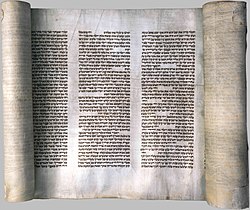1250 ⟶ The Era of the Rishonim
Period of the Rishonim, the medieval rabbinic sages. Most Je...Year
220
550
700
1135
1176
1250
🕍 Beginning of the Gaonic Era
Period of the Gaonim (the Gaonic era). Most Jews lived in the Muslim Arab realm (Andalusia, North Africa, Palestine, Iraq and Yemen), others living in Christian southern Europe and Asia Minor. Despite general discrimination and sporadic periods of persecution in this period, Jewish communal and cultural life flowered. The universally recognized centers of Jewish life were in Jerusalem and Tiberias (Syria), Sura and Pumbeditha (Iraq). The heads of these law schools were the Gaonim, who were consulted on matters of law by Jews throughout the world. During this time, the Niqqud is invented in Tiberias.⟶

GaonimJewish LawHalakhaTalmudic Era7th Century8th CenturyJewish CultureNiqqudSuraPumbeditha
 Iraq
Iraq Israel
Israel Spain
Spain Morocco
Morocco Tunisia
Tunisia Italy
Italy📜 Maimonides's Influence on Jewish Law and Philosophy
Rabbi Moses ben Maimon, aka Maimonides or the Rambam is the leading rabbi of Sephardic Jewry. Among his many accomplishments, he writes one of the most influential codes of law (The Mishneh Torah) in Jewish History as well as, in Arabic, many philosophical works including the (Guide for the Perplexed).⟶

MaimonidesRambamSephardic JewryMishneh TorahGuide for the PerplexedJewish LawPhilosophyCodificationMedieval JudaismHalakha
 Spain
Spain📖 Maimonides Completes the Introduction to the Mishneh Torah
Maimonides completed his Introduction to the Mishneh Torah.⟶

MaimonidesRambamMishneh TorahIntroductionJewish LawCodificationHalakhaMedieval JudaismSephardic JewryRabbinic Literature
 Spain
Spain📚 The Era of the Rishonim
Period of the Rishonim, the medieval rabbinic sages. Most Jews at this time lived in lands bordering the Mediterranean Sea or in Western Europe under feudal systems. With the decline of Muslim and Jewish centers of power in Iraq, there was no single place in the world which was a recognized authority for deciding matters of Jewish law and practice. Consequently, the rabbis recognized the need for writing commentaries on the Torah and Talmud and for writing law codes that would allow Jews anywhere in the world to be able to continue living in the Jewish tradition.⟶

RishonimMedieval JudaismRabbinic SagesHalakhaCommentariesTorahTalmudJewish LawCodificationJewish History


